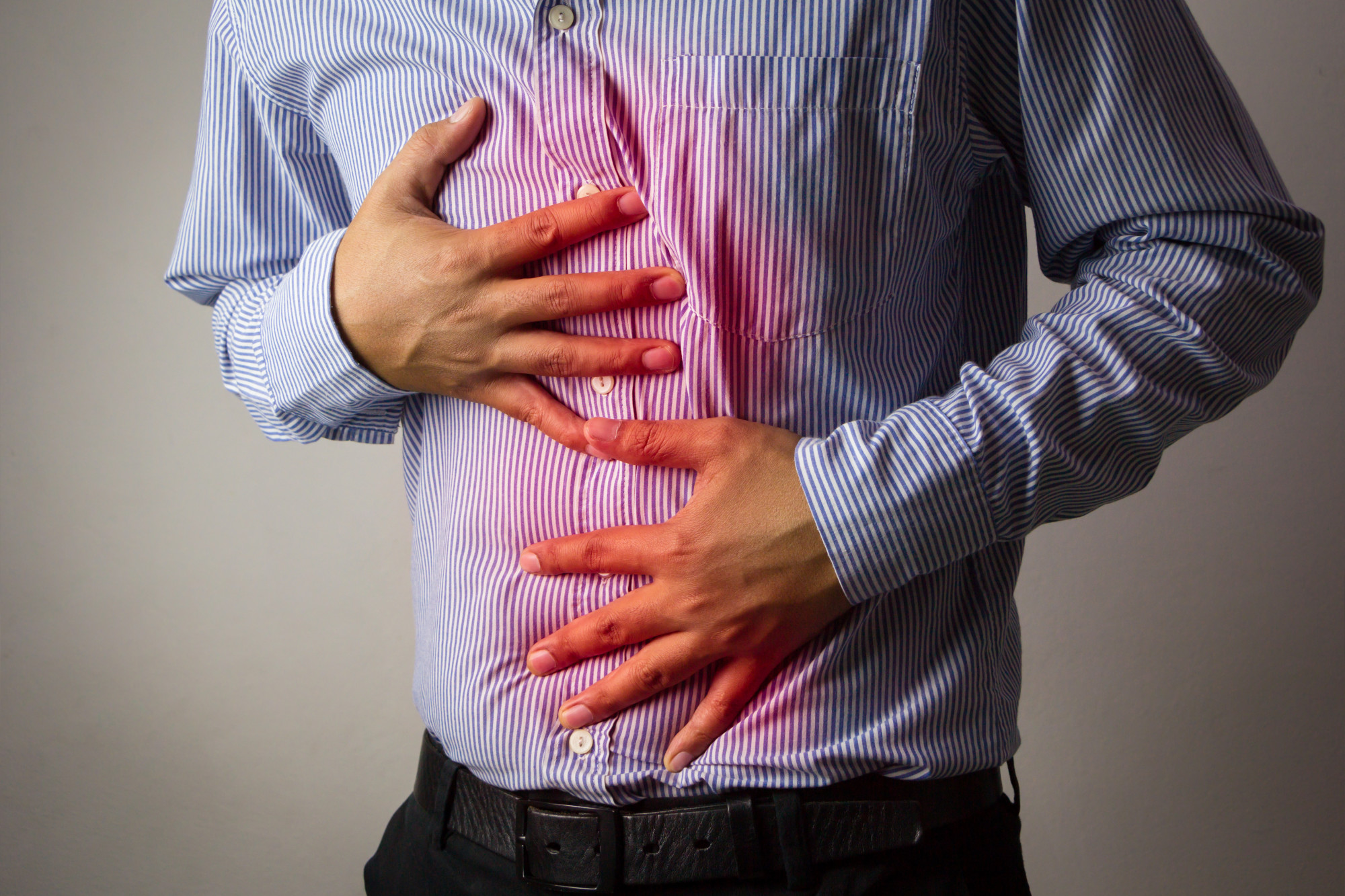
What Does Acid Feel Like? 9 Surprising Signs That You Have Acid Reflux

Did you know that 20 percent of Americans have gastroesophageal reflux disease (GERD)? Each year this common condition affects babies, children, and adults and even leads to millions of hospitalizations when it becomes very serious.
Whether you have occasional heartburn or experience it regularly, you’re probably familiar with that burn you feel in your chest right after you’ve had a meal. But did you know that this condition causes other effects in your throat, stomach, mouth, and even lungs?
So, what does acid feel like exactly, besides that familiar burning sensation? Read on to learn about nine surprising signs you have acid reflux.
1. Pain in Your Chest
Have you ever wondered, “Can acid reflux cause chest pain?” The answer is yes!
In fact, waking up with heartburn can come with such severe chest pain that you might mistakenly think you’re having a heart attack. You might even notice you have pain in your chest when swallowing.
While it’s a good idea to visit the ER if you have chest pain, do know that it may actually be your acid reflux rather than your heart.
2. Excessive Saliva
Have you ever had a bunch of saliva in your mouth after you have just eaten?
If so, the irritation from acid reflux in your esophagus might be causing your mouth to water. Basically, it causes your saliva to build up so it can wash the bad stuff away, giving you the urge to spit it out.
3. Sore Throat and Hoarse Voice
Not only does acid reflux make your chest hurt, but you might also notice your throat feels sore from the irritation. You may even have a sudden sharp pain in your throat when swallowing.
When acid hurts your vocal cords, you might even lose your voice or at least feel hoarse.
It’s common for people to mistake these symptoms as a cold or flu coming on and don’t suspect it’s coming from acid indigestion. Before you reach for cold and pain medications, see your doctor to investigate possible indigestion issues.
4. Bitter Taste in Your Mouth
Along with that extra saliva, you may notice a strange taste in your mouth, especially towards the back where your throat is.
It’s often a bitter or sour taste, and at the same time you might feel something burning in the back of your throat along with the need to burp. This is the acid building up back there causing this unpleasant taste.
5. Asthma and Other Breathing Issues
You may be surprised to hear there’s a connection between acid reflux and coughing, along with other breathing problems.
This most often will happen when you’re trying to sleep since lying down makes it easier for the acid to wash up your throat, and your chest also has nerves that the acid can bother.
In people with asthma, the symptoms can particularly be severe and cause wheezing. But even without existing breathing issues, people might find their acid reflux causes a choking sensation that makes them short of breath.
Your doctor can perform a pH test to determine if acid is the culprit of such issues.
6. Difficult and Painful Swallowing
Along with giving you a sore throat, acid reflux can make it painful or even difficult to swallow.
Not only does the burning sensation in your throat make swallowing unpleasant, but the acid can actually damage and scar your esophagus. Even though your esophagus may heal, the damage will occur again, making it a constant cycle.
You may also notice your throat feels swollen and narrow, which also makes swallowing food or drink more uncomfortable.
7. Development of Pneumonia
Surprisingly, acid reflux can actually lead to a type of pneumonia called aspiration pneumonia.
This happens when the acid gets inhaled into your lungs. It can lead to serious symptoms like shortness of breath, wheezing, discoloration of your skin, coughing with blood and excessive sweating.
If not treated promptly, aspiration pneumonia can lead to hospitalization or the need for breathing support.
8. Bad Stomach Pain
When you have acid reflux, you’ll find that your chest and throat aren’t the only things hurting. You might also have stomach pain that feels like you have a stomach virus or have eaten too much food, even if neither is the case.
The stomach pain may feel not as intense when you’re standing up than it is when you’re sitting or lying down. You’ll especially notice the pain is worse at night, which can make it harder to sleep.
This is due to gravity not being able to fight the reflux when you’re at rest
9. Nausea and Vomiting
While often associated with stomach viruses, nausea and vomiting are actually two common stomach and digestive issues that come with acid reflux.
Nausea from acid reflux is most common right after you’ve just had a meal, although you may find it lingers long after. In some cases, it can be so bad that you have to throw up.
Luckily, over-the-counter antacid tablets can help with these symptoms.
Now You Know the Answer to “What Does Acid Feel Like?”
You now have a better understanding of how this condition affects your body and no longer will need to ask, “What does acid feel like?”
If you’ve never been formally diagnosed with GERD, consider visiting your doctor. Common tests like an upper endoscopy or x-ray can determine if you have the condition and assist your doctor with treatment.
You may end up taking a combination of over-the-counter and prescription medications like antacid tablets, H-2-receptor blockers, and proton pump inhibitors. These medications act to reduce the acid and block its effects. In serious cases, your doctor may consider surgery.
When you’re getting treated, be sure to check out our website for your GERD medication needs.
Related Posts


